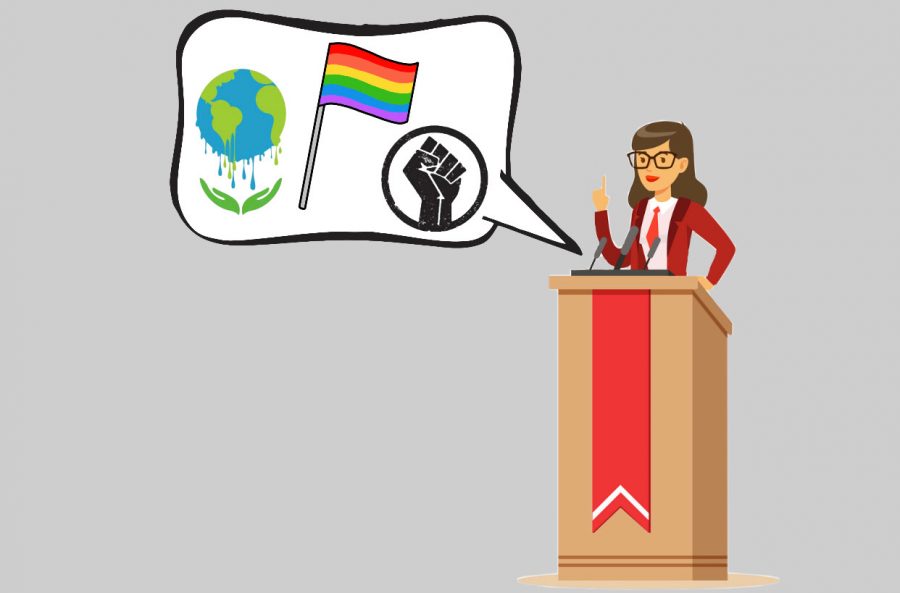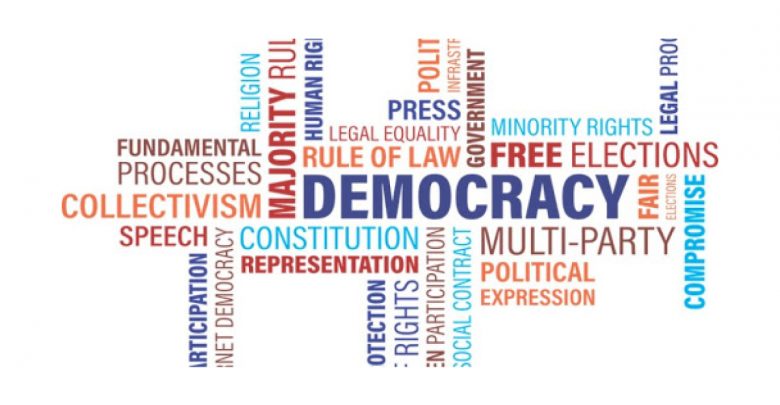Exploring the Social and Political Impact of Term Limits
These limits can apply to various levels of government, from local councils to national legislatures and even executive offices

The Concept of Term Limits and Their Impact on Political Representation
The idea of term limits in politics is a subject of ongoing debate and discussion. Term limits refer to legal restrictions on the number of terms an elected official can serve in a particular office. These limits can apply to various levels of government, from local councils to national legislatures and even executive offices. Proponents argue that term limits are essential for promoting accountability, preventing the concentration of power, and ensuring a healthy turnover of leadership. However, critics contend that term limits may have unintended consequences, such as limiting experienced leaders and reducing institutional knowledge. In this blog post, we will explore the concept of term limits and their impact on political representation.
Understanding Term Limits
Term limits are designed to prevent the consolidation of power by incumbents and encourage fresh faces in government. They can take various forms, including limits on the number of terms or consecutive terms an individual can serve. These limits can apply to positions like mayors, governors, members of Congress, and even presidents.
The primary arguments in favor of term limits are as follows:
Accountability: Proponents argue that term limits help hold elected officials accountable for their actions. When politicians know they have a limited time in office, they may be more inclined to make decisions in the best interest of their constituents rather than focusing on re-election.
Preventing Entrenchment: Term limits prevent politicians from becoming entrenched in their positions, potentially using their long tenure to amass power, wealth, or influence. This prevents the formation of political dynasties and ensures a more level playing field for newcomers.
Encouraging Fresh Perspectives: Term limits can foster innovation and fresh perspectives in government. New leaders bring new ideas, and term limits allow for a regular infusion of fresh talent into the political arena.
Reducing Corruption: By limiting the time politicians can spend in office, there is less opportunity for corruption and unethical behavior to take root. This can help maintain the integrity of the political system.
Impact on Political Representation
While term limits have several potential benefits, they also have significant implications for political representation:
Increased Diversity: Term limits can lead to greater diversity among elected officials. When there are restrictions on incumbents, it opens up opportunities for individuals from underrepresented groups to enter politics. This can result in a more representative government that better reflects the demographics of the population.
Empowerment of Newcomers: Term limits empower newcomers by leveling the playing field. As experienced incumbents step down, new candidates have a better chance of winning elections. This can rejuvenate political systems and introduce fresh ideas and approaches to governance.
Fostering Competition: Term limits promote healthy competition in elections. When there is a regular turnover of incumbents, it encourages candidates to put forth their best ideas and engage more with constituents, knowing that they cannot rely solely on the advantages of incumbency.
Preventing Political Stagnation: Without term limits, there is a risk of political stagnation. Long-serving incumbents may become complacent, leading to a lack of responsiveness to the evolving needs and preferences of the electorate.
Loss of Experience: On the flip side, one of the criticisms of term limits is the loss of experienced leaders. Some argue that experienced politicians have a deeper understanding of complex issues and are better equipped to navigate the intricacies of government. Term limits could result in a loss of this institutional knowledge.
Potential for Short-Term Focus: Elected officials with limited time in office may prioritize short-term gains over long-term planning. This can be detrimental when addressing complex, long-term challenges such as climate change or economic stability.
The Case for Term Limits
Proponents of term limits emphasize the positive aspects and argue that they are a necessary mechanism to rejuvenate democracy. Here are some of the reasons they make in favor of term limits:
Democratic Renewal: Term limits can help in renewing the democratic process by ensuring that the government is composed of fresh faces and new ideas. This prevents stagnation and maintains the vitality of democracy.
Preventing Career Politicians: Critics of long-serving politicians argue that they often prioritize their careers over their constituents' interests. Term limits disrupt the career politician model and encourage public servants who are more dedicated to their constituents' welfare.
Reducing Incumbency Advantage: Incumbent politicians often enjoy a substantial advantage in elections, which can lead to a lack of competitive races. Term limits level the playing field by ensuring that no candidate can rely solely on the advantages of incumbency, such as name recognition and established donor networks.
Counteracting Gerrymandering: In some cases, gerrymandered districts can virtually guarantee the re-election of incumbents. Term limits can counteract this problem by ensuring that even in such districts, there will eventually be a new representative.
The Case Against Term Limits
While term limits have their merits, critics argue that they can also have unintended negative consequences. Here are some of the arguments against term limits:
Loss of Experience: One of the most significant drawbacks of term limits is the potential loss of experienced politicians. Seasoned lawmakers often have a deep understanding of complex issues and can effectively navigate the legislative process. Term limits could result in a dearth of this valuable expertise.
Institutional Knowledge: Long-serving politicians often possess institutional knowledge about how government functions, which is crucial for effective governance. Term limits can lead to a constant turnover of lawmakers who lack this knowledge, potentially causing inefficiency and legislative gridlock.
Pressure for Short-Term Gains: Elected officials with limited time in office may be more inclined to focus on short-term gains to secure re-election in their next position rather than addressing long-term, complex issues that may not bear fruit until after they leave office.
Increased Influence of Bureaucrats and Lobbyists: With lawmakers coming and going, unelected bureaucrats and lobbyists may gain more influence in shaping policy as they have the institutional knowledge and long-term presence in the political arena.
Disrupting Voter Choice: Some argue that term limits take away the voter's choice. If voters genuinely believe in a candidate's abilities and policy positions, they may want to re-elect that candidate, but term limits prevent this choice.
Potential for Ineffective Leadership: Term limits could lead to a revolving door of politicians with little time to learn the ropes. This can result in ineffective governance and frustration among the electorate.
The concept of term limits is a complex and contentious issue in the realm of political representation. While they offer various advantages, such as ensuring democratic renewal, preventing the entrenchment of power, and promoting diversity, they also come with significant drawbacks, such as the potential loss of experienced leaders and the risk of short-term thinking.
Ultimately, the effectiveness and desirability of term limits depend on the specific context and the goals of a particular political system. Striking the right balance between introducing new voices into politics and preserving institutional knowledge is a delicate task that requires careful consideration and ongoing debate. Whether or not term limits are implemented, the broader goal should always be to ensure that the political system is responsive, accountable, and representative of the people it serves.
What's Your Reaction?
















